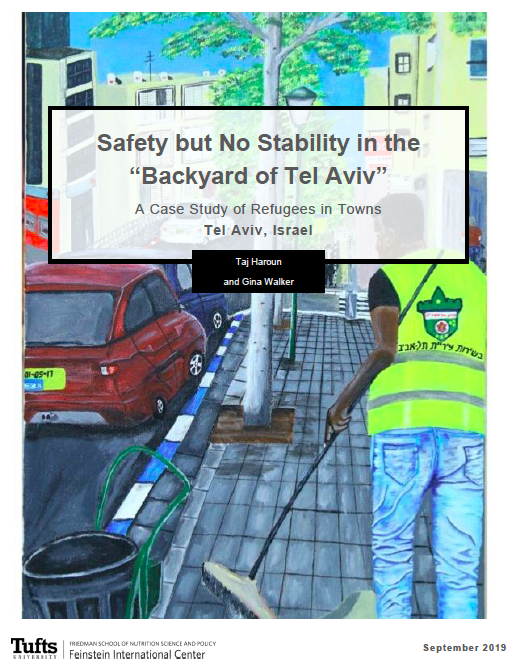Fleeing persecution, discrimination, and lack of economic opportunities, thousands of Eritrean, Sudanese, and other sub-Saharan African asylum seekers arrived in Israel’s cities after making a dangerous crossing through Egypt’s Sinai desert. Despite exclusionary national policies and intense anti-migrant rhetoric at the national level in Israel, South Tel Aviv became a bastion of inclusion and diversity. Levinsky Park, the Tel Aviv Central Bus Station, and other sites became epicenters of migrant integration, activism, and volunteerism. The report’s authors bring two unique perspectives: one is a male Sudanese asylum seeker, and the other is a female Jewish immigrant to Israel who grew up in the UK.
Tel Aviv, Israel: A Case Report of Refugees in Towns

October 2019
ASSOCIATED PROJECT
SUBJECTS
PUBLICATION TYPE
LOCATION
RELATED PUBLICATIONS
The time pressure involved in designing and implementing anticipatory action can discourage the localization of decision-making. Learn more from a cartoon-infused summary of insights.
•
July 2024
Early Warning Systems can reduce deaths and damages caused by extreme weather events, if investors address gaps in communication and planning. Learn more from a cartoon-infused summary of insights.
•
July 2024
This synthesis report reflects upon Phase 1 findings on humanitarian action in pastoral drylands of the Greater Horn and Sudano-Sahel.
•
June 2024
This desk study examines common perceptions of pastoralism among humanitarians and barriers to international humanitarian systems meeting pastoralists’ needs.
•
June 2024
This desk study explores how state-owned policies and programs in pastoral areas of the Sudano-Sahel and the Greater Horn of Africa meet pastoralists’ needs and priorities.
•
June 2024
This desk study explores how pastoralists manage climate, conflict, and other stresses through indigenous early warning systems, preventive actions, local emergency responses, and customary safety nets.
•
June 2024






